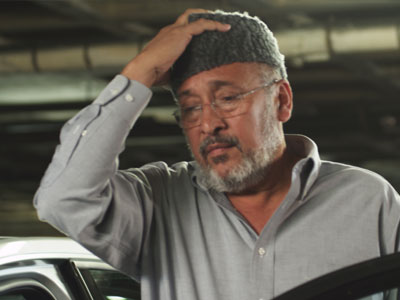
With bans in India becoming a running gag for snickering-yet-anxious netizens, it’s slowly becoming hard to keep track of the things that our government won’t allow us to see, hear, or read, for one absurd reason or the other. The latest film to be struck down by the Central Board of Film Certification, ‘Unfreedom’, is in no mood to take this lying down.
‘Unfreedom’ is a political thriller tracing the intertwined narratives of same-sex lovers and of a Muslim fundamentalist, both of which are pretty touchy subjects here. The maker of the film, Raj Amit Kumar, launched a campaign against censorship last month, ahead of the film’s proposed May 17th release in India, and remains a strong challenge to the clamp down on expression that Indian authorities are happily congratulating themselves over.
Youth Ki Awaaz’s Shambhavi Saxena gets talking with the director about the film, the issues it raises and what the Censorship Board really should be doing.
Shambhavi Saxena (SS): Why did you think it was important to deal with a subject matter like homosexuality and religious fundamentalism on film? Why should people see this film?
Raj Amit Kumar (RAK): Because it is important to show what homosexuals face in India and how unfair, violent, brutal acts are committed on them. Because it is important to show how religious intolerance is creating an even more violent world today. People should see the film because these are everyday issues and problems we face and we need to take them head on and try to find solutions. Also, it is an intense fast paced thriller and a dramatic rendition which the audience will find very engaging.
SS: How were you expecting ‘Unfreedom’ to be received in India? Did you see the ban coming?
RAK: I know that I am dealing with tough subjects and I also know that my way of dealing with them is very raw and blunt. But that is who I am as a filmmaker. And I believe in absolute freedom of expression and I imagine that most Indians do as well. I knew that censorship authorities in India may have issues with some nudity but I did not think that we have become this regressive as a country that we tell Indians not to discuss certain ideas. So no, I did not expect a ban.
I hope the Indian youth will stand for, and like the film. The two screenings we did at IIT Bombay and IFFK (International Film Festival Of Kerala) proves this. There was an overwhelming response. The Indian youth is ready to discuss and debate any idea, in fact, they want to address tough subjects. However, our censor guardians are not able to handle what our youth wants to address. Our Censor board says the common Indian public is not “evolved“, but it is the other way around: our censor board needs to grow up and “evolve“. I would rather say they should just dissolve and get out of people’s way.
SS: Was it really the subject matter that caused the Censor Board and Tribunal to respond unfavourably, or do you think this general atmosphere of bans and censorship has enabled these authorities to really clamp down on expression?
RAK: Who has created this “general atmosphere“? What right – legal, constitutional or otherwise – does the Censor Board and Tribunal have to respond unfavourably to any subject matter? Their job is only to certify a film and inform public what category of age a film belongs to. This general atmosphere is created by them for their political agendas and to control popular consciousness. And yes, they are clamping down on us Indians now and it is important for us to fight back.
SS: They say any publicity is good publicity. Do you think the ban and subsequent discussion around your film is actually having the effect you intended in the first place or has it steered away the conversation?
RAK: The conversations about the form and content of the film can only happen after someone sees the film, so no, this is not the effect I intended – that people in India will not be allowed to see this film in a public setting and will not be able to discuss the material. Is it giving the film publicity? Yes, of course.
SS: When Shonali Bose took ‘Margarita With A Straw’ to the Board, their reaction was varied, in fact, outside the official space, some women members actually commended her. Left to subjective opinions, how relevant is a censorship body in today’s day and age when nearly everything is freely available on the internet?
RAK: Censorship is about self-censorship. If a film is limited to the Internet, the financial disadvantage to a filmmaker is huge. And that is what Censors want. They want to hurt our voices and ideas economically, politically, ideologically, and if need be, violently, so that society in general self-censor and refrain from picking up certain ideas.
SS: People who oppose free speech as a ‘right’ often argue that it will give people the power to say potentially hurtful or destructive things. How valid do you find that argument?
RAK: The purpose of freedom of speech is to provide the right to offend. I don’t get it. Those who have power anyways have the freedom. It is for everyone else to speak against someone or something. How can we not offend and still have freedom of speech? If there is one right that is most fundamental, it is our right to speak. No matter who it offends and no matter who it insults. There is no freedom of speech and expression if there are restrictions to it. It is one freedom that should be absolute and worth dying for.
SS: What do bans like these essentially mean for independent makers of art?
RAK: If art is limited by bans or censorships the financial disadvantage to independent artists is huge. It is even tougher for them to recover as they put everything they have to get their art done. And that is what Censors want. They want to hurt our art, expression, our stories, our voices, so there are less of us out there who will dare do it again.
SS: You’ve gone to the High Court with this and also started a campaign around the issue of censorship. How has that experience been so far?
RAK: It is the beginning of a long struggle against absurdity and violations of basic human rights that should not happen in any country.I hope Indians will come together and defeat censors.
SS: Is there something you’d like to end by saying directly to the viewers in the world’s largest democracy?
RAK: The birth of democracy as a starting point was the fight against autocracy. We are moving towards autocratic capitalism married with fundamentalism and passing it off as world’s largest democracy. And censoring people is clear sign. We need to wake up from our apathy and do something about it or soon we will be made to ‘feel free’ while living in a completely ‘unfree’ society.


